Why UK protesters are supporting Indian farmers
- Published
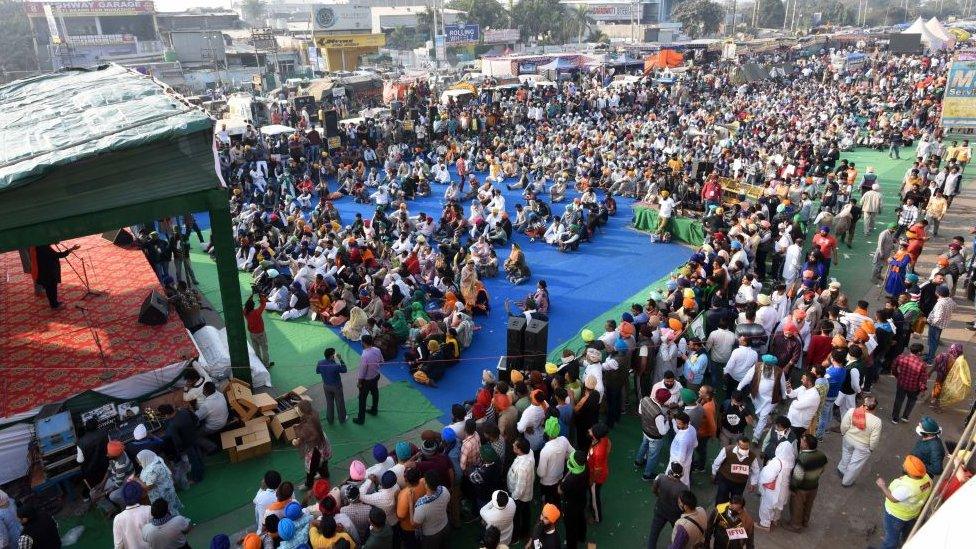
Millions of farmers have camped out in Delhi in a protest against the new farming bills
Footage of Indian farmers protesting about agricultural reforms has gone around the world, and the issue has even been raised with Boris Johnson during Prime Minister's Questions.
The protests, which have seen more than 250 million workers go on nationwide strikes, have captured the hearts of Indian diasporas - with many taking to the streets and internet to register their support.
But why do people born in the UK feel so strongly about an issue affecting agricultural workers thousands of miles away?

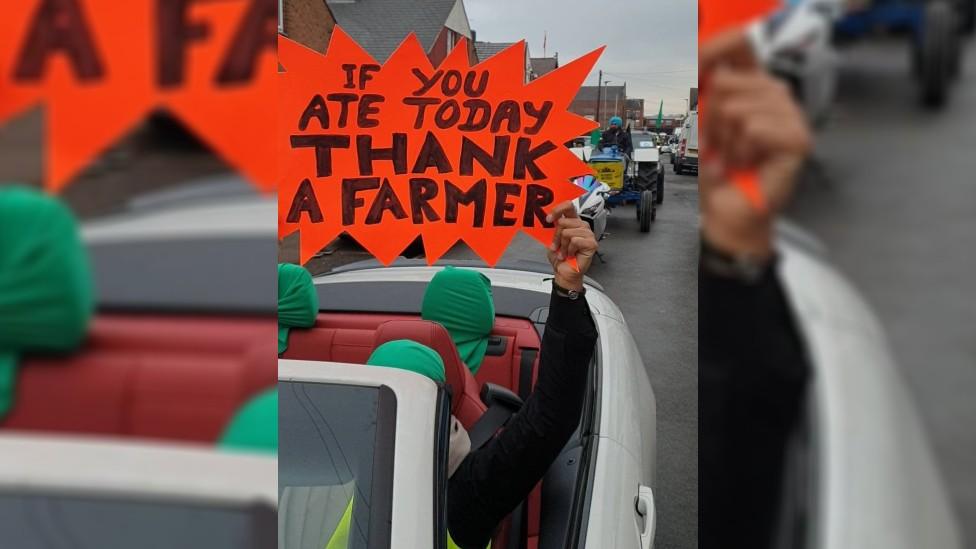
People drove around Leicester in order to protest
Although Gupy Sandhu's life as an estate agent in Leicester might seem far removed from the farmlands of south Asia, he said he feels a very personal connection to the Indian protests.
"I wouldn't be here in this country if it wasn't for my ancestors and their hard work," said the 31-year-old.
"My grandparents were farmers and, if they weren't in such a good financial state because of it, my parents wouldn't have been able to come to the UK.
"We are grateful for what our ancestors gave us."
On Sunday, Mr Sandhu joined a rally of hundreds of cars in Leicester.
The vehicles - which Mr Sandhu said allowed for social distancing between households - were waving green flags - a colour adopted by the Indian farmers' unions.
Mr Sandhu compared his involvement to the Black Lives Matter protests, which saw thousands of people in the UK demonstrate against the killing of George Floyd.
"People said... George Floyd was in America so why are you protesting here? But people protested for basic human rights," he said.
"This is not a religious issue, it's a human issue."

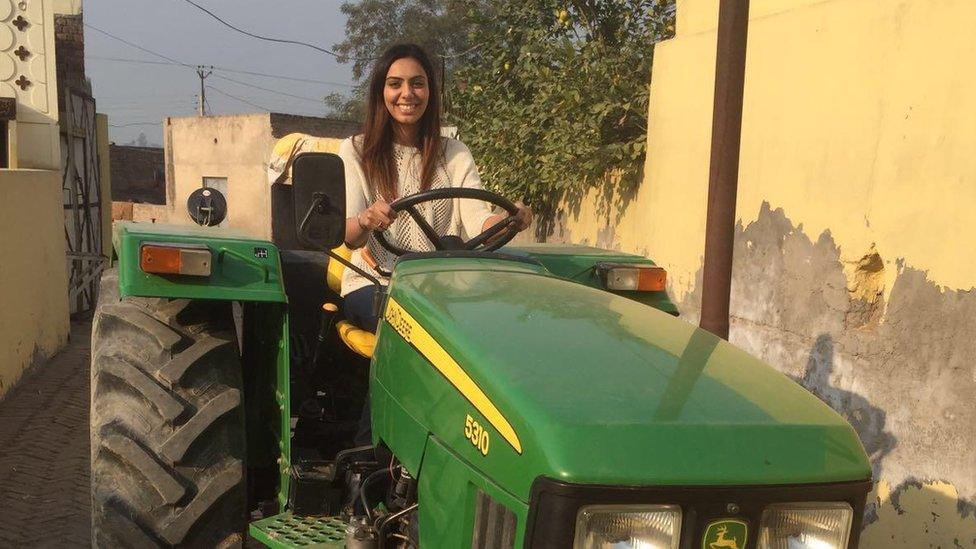
Farmer's daughter Nav has used her social media channels to inform people about the Indian protest
As a daughter of a former farmer, Nav Mann feels passionately about the protests too.
She said she is using social media channels to raise awareness of the farmers' fears that government reforms will severely affect their livelihoods.
"So many people don't know anything about it, so even if only 10 people read my story at least I am getting something out there," she said.
The 35-year-old, from Leicester, said her father Gurdip Singh Bassi worked in Punjab as a young man, turning the family's infertile land into "flourishing fields and profitable crops".
"They have taken it from nothing to where it is today and without that we might not be sat in the UK," she said.
"I feel so privileged my family have worked so hard and always had their kids and their future in mind."
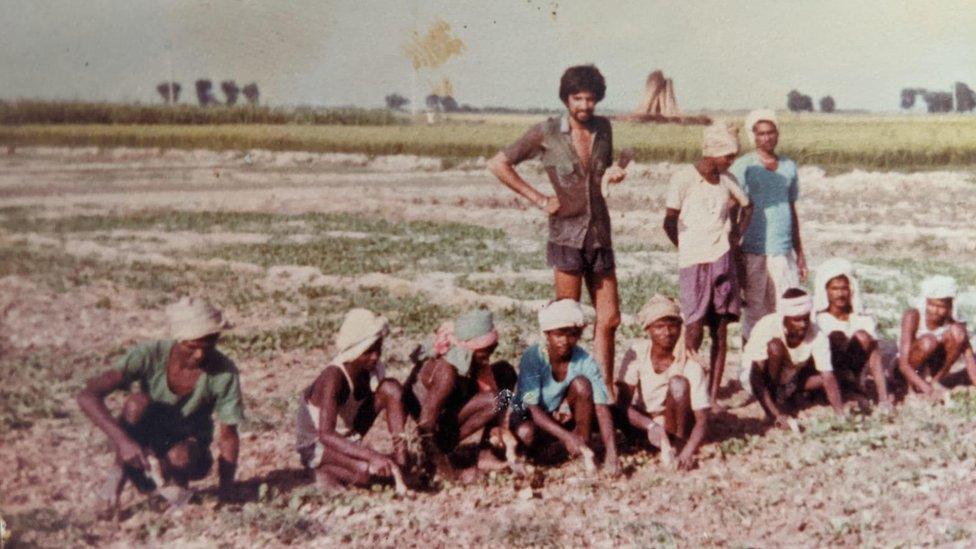
Nav's father Mr Bassi (standing) worked on the family's fields during the 70s and 80s before relocating to the UK
Mrs Mann, who works as a merchandiser at Next, suggested the treatment of the farmers may have knock-on effects around the world.
She said many spices sold in the UK are produced by farmers in India.
"We are all about small businesses [in the UK] and buying local produce," she said.
"Why can't [that apply to] the people who produce these things in India?
"This could have happened to farmers in this country and we would do our bit to support them, so why wouldn't we support the farmers there?"

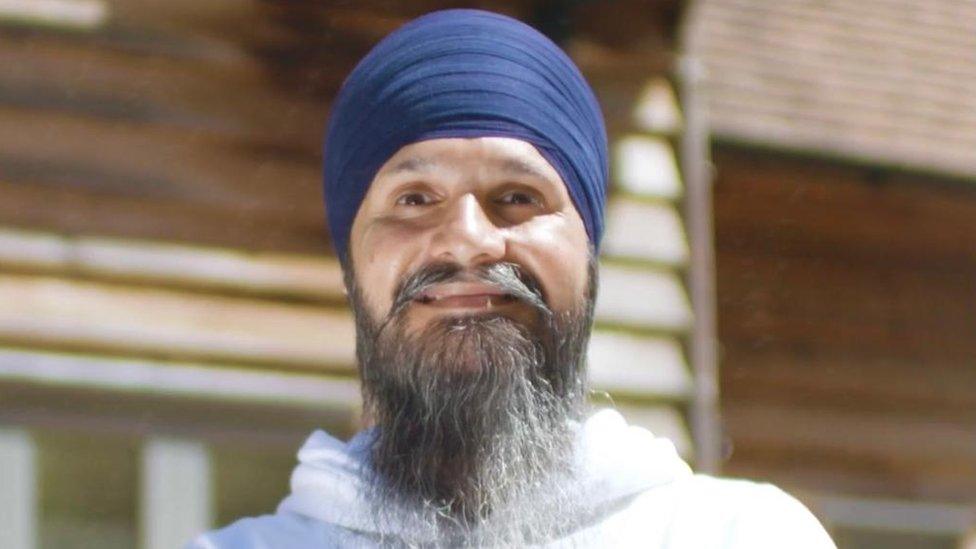
Harinder feels it is important to recognise his heritage and show solidarity with the Indian farmers
Harinder Singh, 43, took his family to a car rally in London on Sunday to support those "in pain" in India.
"The reason we took the kids is so they see that there's an importance to all this. That something serious is happening," he said.
"This is our lineage; it's our history.
"We have never... tried to do anything with a piece of land, but we know the value of what it means for those that continue to do it. Without it, they have nothing left."
The programme manager from Cobham, Surrey, spent more than a year living in India in his teens and has had a strong connection to his parents' homeland ever since.
"The more you read, it really strikes you to the core," he said.
"The elderly are there fighting. They are sleeping on the side of roads, in the back of trucks. India is a cold place at night in December, and that pain is seen by all of us.
"We are so far away from where they are, and we have got it cushty here, but when you see that, you think, 'Hang on. What am I doing?'"
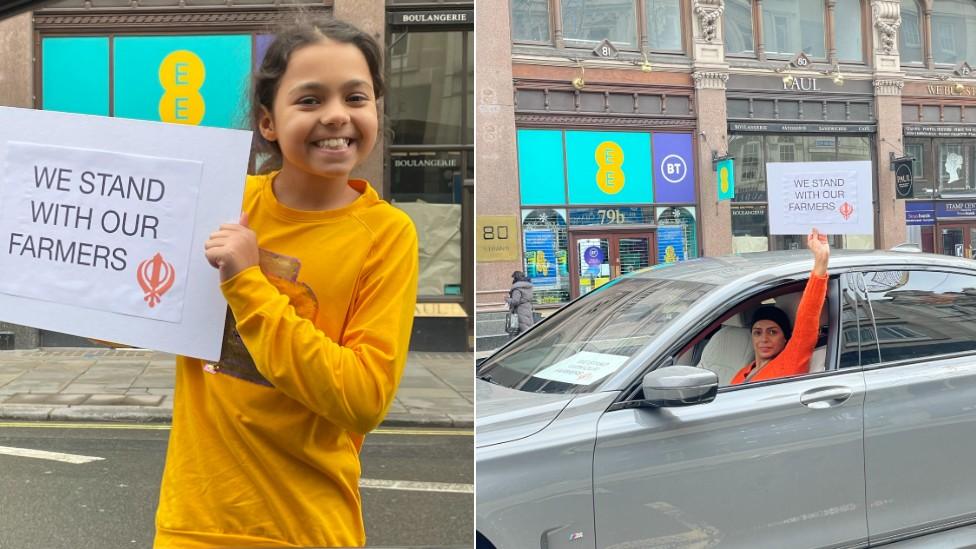
Harinder's wife Rupinder and daughter Daya, nine, attended the London rally too
Satinderpal Gosal, 29, from Willenhall, in the West Midlands also travelled to London for the demonstration.
"I'm a very proud Punjabi, even though I'm born in the UK," he said. "But generations of my family have put their blood, sweat and tears into the farming in Punjab.
"Farming is the essence of that region. It is the heartbeat of the Punjabi people and it's our heritage.
"So I feel it is our duty. We could not sit at home in the warm when our ancestors are suffering. We have to support them and show there are people out there listening to what's going on."
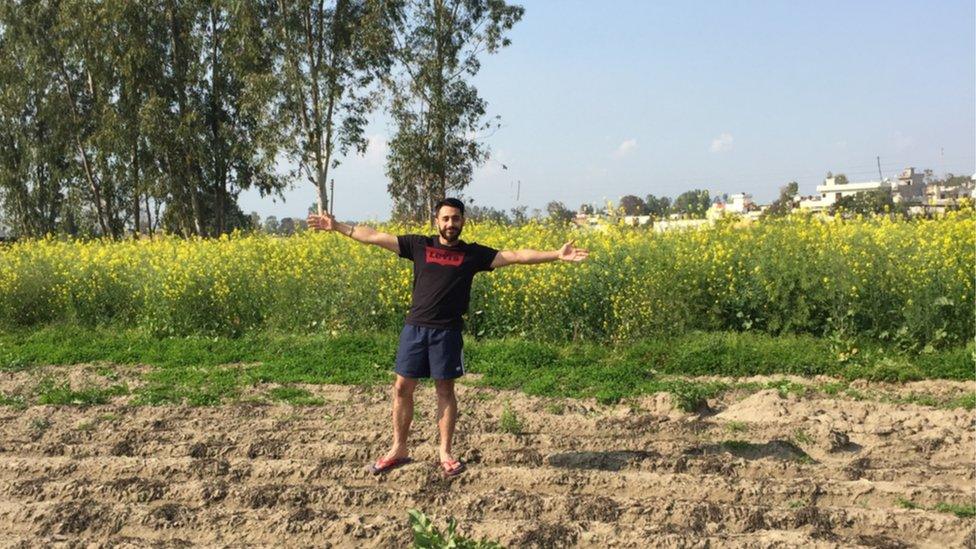
Satinderpal said he had a duty to speak out

What are the protests about?
In the last fortnight, tens of thousands of Indian farmers have descended on the streets of Delhi and camped out at borders in a protest over controversial new laws
They are angry about three new farm bills which the government said would reform the agricultural sector
However, farmers say this was done without consultation and they fear losing earnings and their protection over guaranteed prices
Last weekend rallies were held in London and Leicester, with more planned in the coming weeks, including two in Birmingham and Northampton this weekend

Jas Singh, from Derby, who is part of Sikh Federation UK, said he felt the protests had resonated with diasporas around the world because of connections to their ancestors - particularly those with links to the northern states of Haryana and Punjab which are the country's biggest contributors of food grains.
Ahead of the demonstrations, a group of MPs led by Slough's Labour MP Tanmanjeet Singh Dhesi wrote to Foreign Secretary Dominic Raab about the events in India and its impact on UK citizens.
India's governing Bharatiya Janata Party (BJP) has said the reforms, which allow private players a greater role in the farming sector, will not hurt farmers' incomes.
The Foreign Office said the issue was "a matter for the government of India".

Follow BBC East Midlands on Facebook, external, Twitter, external, or Instagram, external. Send your story ideas to eastmidsnews@bbc.co.uk, external.
Related topics
- Published9 December 2020
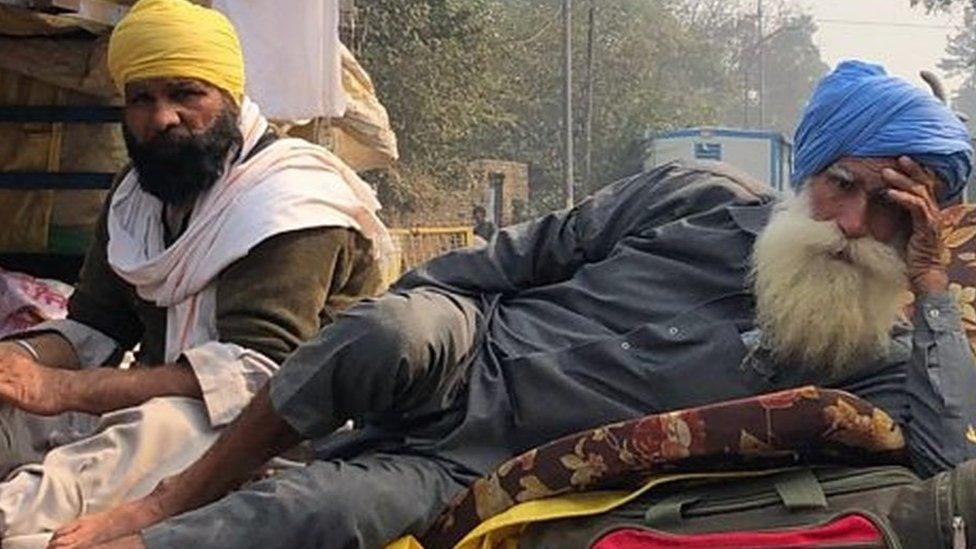
- Published8 December 2020
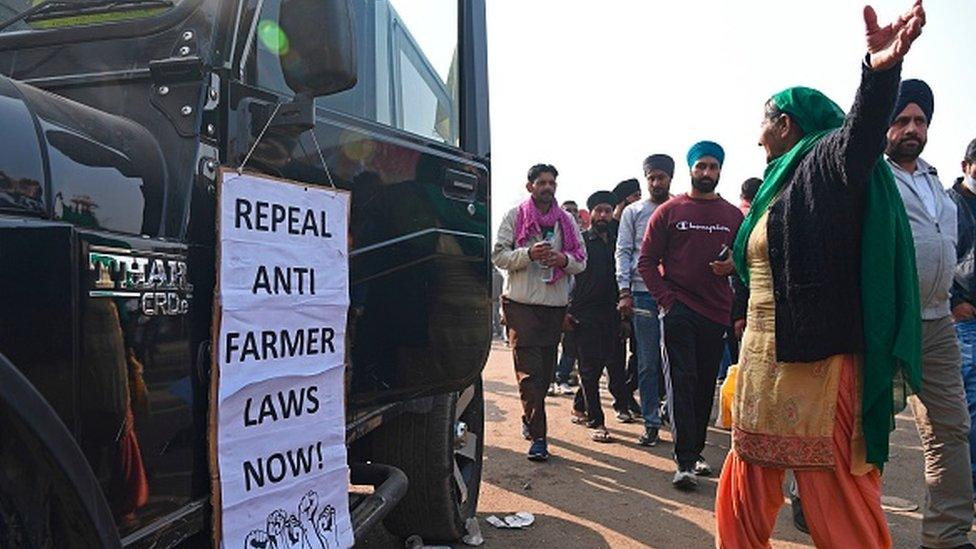
- Published6 December 2020
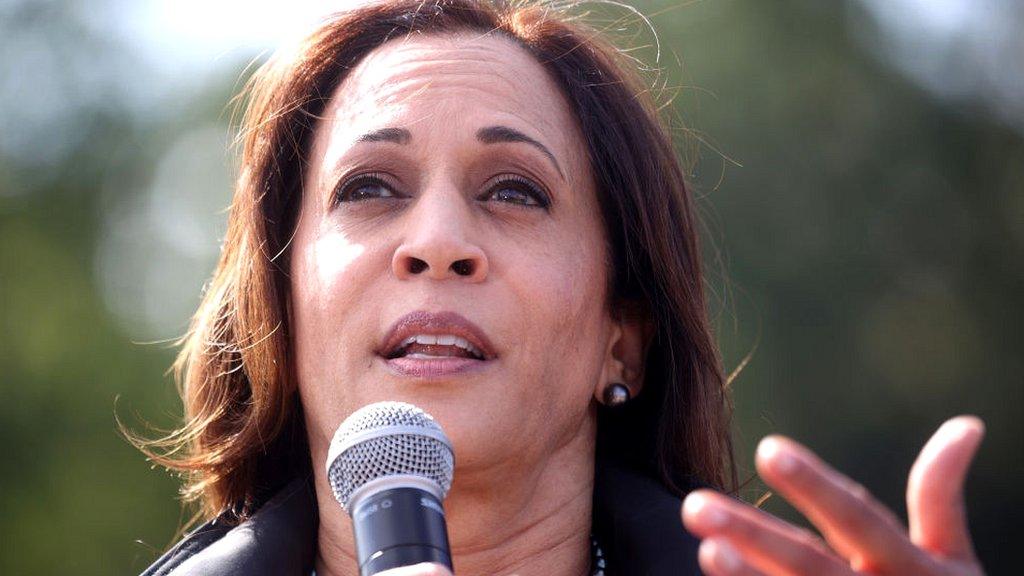
- Published2 December 2020
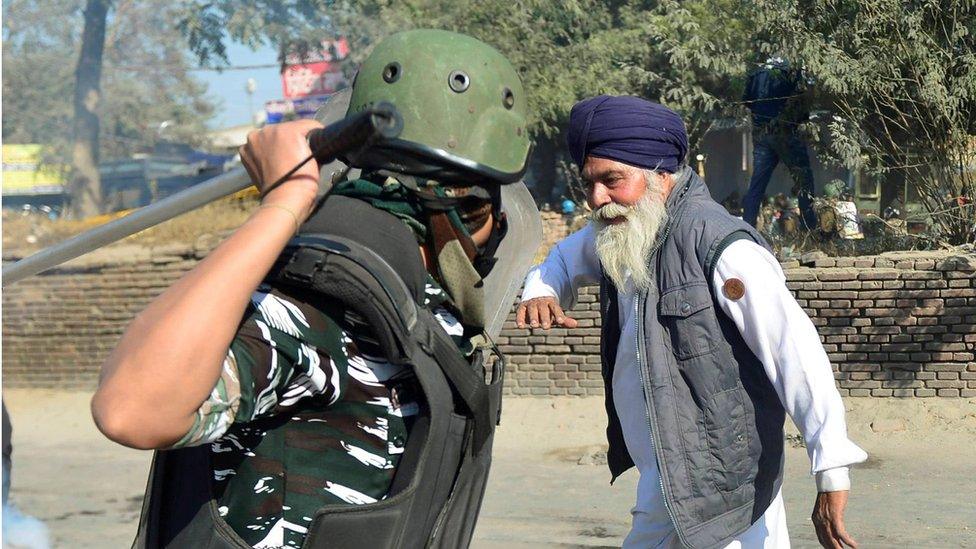
- Published27 November 2020
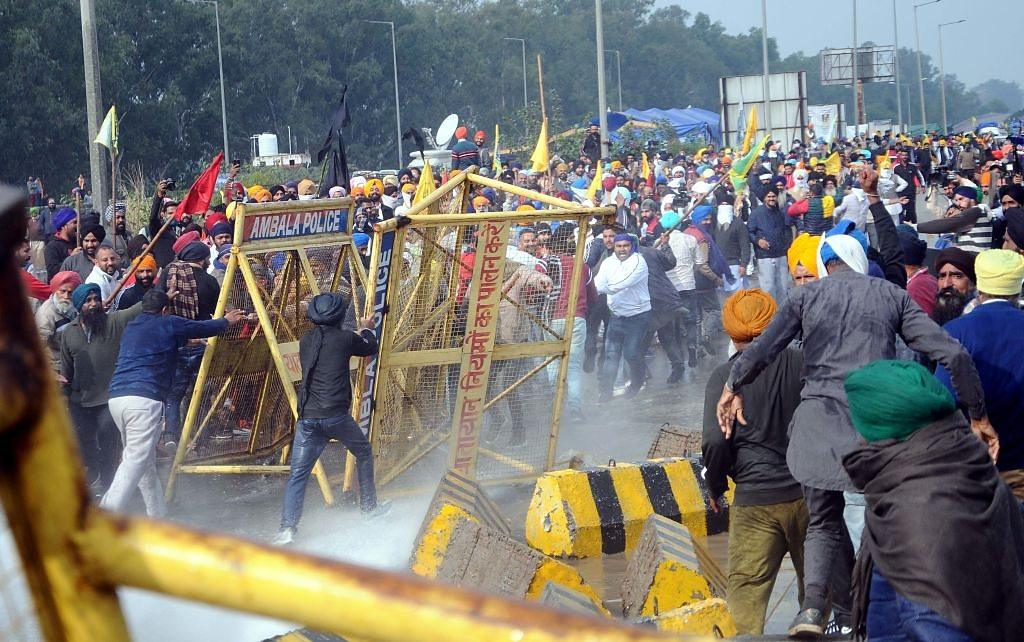
- Published27 September 2021
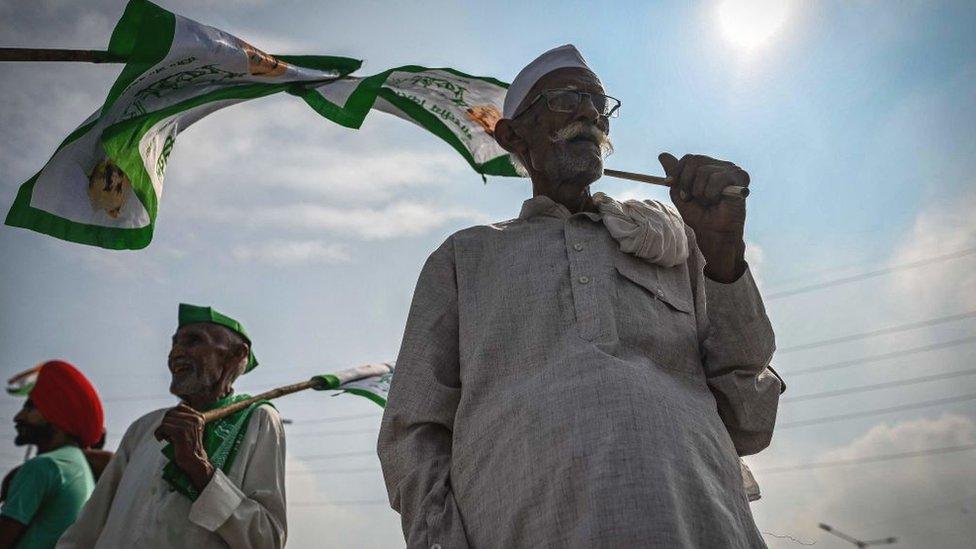
- Published3 December 2020